Button batteries, despite their small size, are a significant environmental concern due to their toxicity and risk to wildlife and human health if improperly disposed of. These batteries contain hazardous substances like lithium, mercury, and cadmium that can cause pollution and ecosystem disruption when leached into the environment from landfills. Their production also has a high environmental cost due to energy consumption and resource extraction leading to a large carbon footprint. To mitigate these issues, consumers are encouraged to dispose of button batteries responsibly at designated collection points or through recycling programs specialized for this purpose. Proper disposal not only reduces environmental impact but also supports the recovery of valuable metals, promoting sustainable battery production and minimizing reliance on virgin resources. It's essential for consumers to be aware of local waste regulations and utilize appropriate facilities for safe disposal. The recycling process for button batteries involves mechanical separation followed by chemical processing to extract and reuse valuable materials like lithium, aiding in resource conservation. Advances in recycling technology, including bio-leaching with microorganisms, are being explored to enhance the environmental friendliness of the recycling process. Moreover, the development of rechargeable button batteries is anticipated to further decrease the environmental impact associated with their use. The transition towards sustainable disposal and reclamation practices for button batteries relies on the collaboration of manufacturers and consumers in adopting innovative recycling solutions and staying informed about new developments in this field.
button batteries pose a significant environmental threat due to their toxic composition and potential to cause harm to wildlife and ecosystems. This article delves into responsible recycling practices for these small yet impactful items. We’ll explore the environmental footprint of button batteries, safe disposal protocols, and effective collection methods. Understanding the recycling process behind these batteries, including innovative repurposing techniques, is crucial for environmental stewardship. A household guide tailors practical steps to safely recycle button batteries, while highlighting community and corporate initiatives underscores collective responsibility. Lastly, we’ll examine upcoming advancements in recycling technology that promise further solutions to this pressing issue.
- Understanding the Environmental Impact of Button Batteries
- Proper Disposal Methods for Used Button Batteries
- Identifying and Collecting Old Button Batteries from Electronic Devices
- The Recycling Process: How Button Batteries are Repurposed
- Household Guide to Safely Recycling Button Batteries
- Community and Corporate Initiatives for Responsible Button Battery Recycling
- Future Innovations in Button Battery Recycling Technology
Understanding the Environmental Impact of Button Batteries
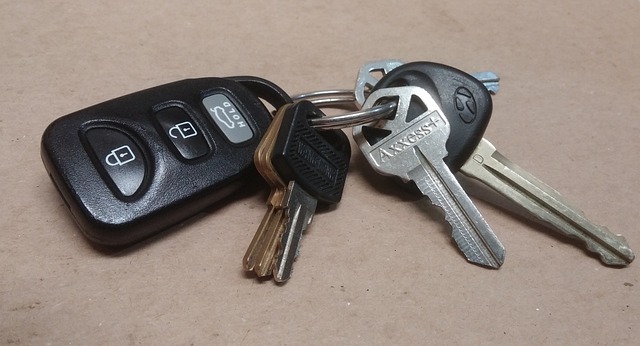
Button batteries, small but significant power sources found in an array of household devices from remote controls to hearing aids, pose a substantial environmental risk when disposed of improperly. Their alkaline composition means they can cause chemical burns and are hazardous to wildlife if ingested. The environmental impact of these batteries extends beyond their physical consequences; the manufacturing process also has a carbon footprint due to energy consumption and resource extraction. Each year, millions of button batteries end up in landfills, leaching harmful substances into the soil and water systems, disrupting ecosystems and contributing to pollution. It’s crucial for consumers to understand the potential environmental harm these seemingly innocuous batteries can cause and to adopt responsible recycling practices. Proper disposal through designated collection points or specialized recycling programs not only mitigates the direct environmental impact but also supports the recovery of valuable materials that can be reused in new battery production, creating a more sustainable cycle and reducing the need for virgin resources. By taking this proactive approach to managing button batteries, we can significantly lessen their ecological footprint and safeguard our natural environment.
Proper Disposal Methods for Used Button Batteries
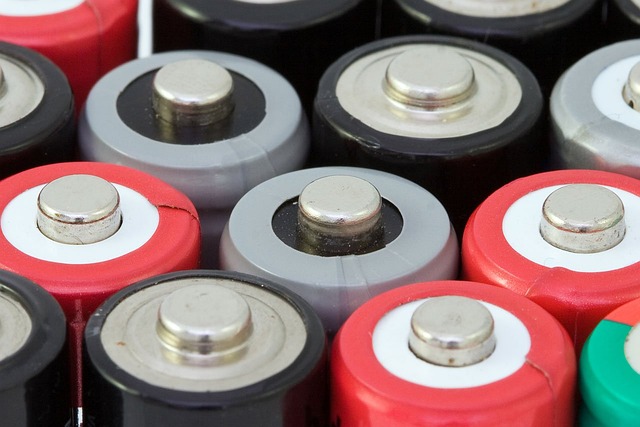
When the lifecycle of button batteries comes to an end, it is imperative to manage their disposal responsibly due to their composition containing toxic substances like lithium, mercury, or cadmium. These elements can pose significant environmental and health risks if improperly disposed of. To ensure safe disposal, consumers should first check the local regulations in their area, as some regions have specific programs for hazardous waste collection. It is crucial to keep button batteries out of landfills; instead, they should be taken to designated recycling centers or authorized collection points, which can typically be found at household hazardous waste facilities, electronics retailers, or local government offices.
Recycling button batteries is a complex process that involves careful handling to prevent environmental contamination. The recycling process begins with the mechanical separation of the battery’s components. This is followed by chemical processing to extract and recover valuable metals like lithium, which can be reused in new batteries, thus minimizing resource depletion. Consumers play a vital role in this cycle by adhering to proper disposal methods, ensuring that button batteries are handled in an environmentally sound manner, thereby contributing to the sustainability of our planet’s resources.
Identifying and Collecting Old Button Batteries from Electronic Devices

When addressing the responsible disposal and recycling of button batteries, the first step is to identify and collect these small but potent cells from electronic devices. These batteries, commonly found in hearing aids, remote controls, watches, and various other gadgets, are a type of alkaline or lithium battery known as coin cells due to their similar size and shape. As they power down devices, it’s crucial to proactively remove them to prevent accidental ingestion and ensure proper recycling. To begin the collection process, carefully extract the batteries from their respective devices. This can typically be done by gently prying open the device or removing a small compartment where the battery resides. It’s important to handle these batteries with care, as they can still retain some power even after being used. Once collected, store them securely in a dry container, labeling it clearly to avoid confusion with other types of batteries. This preparation sets the stage for their safe transport to designated recycling facilities, where they can be properly processed and their materials reclaimed for use in new products. Remember to check local waste management guidelines, as some areas may have specific protocols for handling and disposing of button batteries due to their hazardous nature and the potential risk they pose if disposed of improperly.
The Recycling Process: How Button Batteries are Repurposed

Button batteries, commonly found in small electronic devices such as watches and hearing aids, pose a significant environmental challenge due to their lithium content, which can be hazardous if improperly disposed of. The recycling process for these batteries is meticulous and involves several key steps to ensure both the safety of the environment and the recovery of valuable materials. Initially, button batteries are collected through household collection programs or electronic waste recycling centers. Once collected, they undergo a sorting process where they are separated from other types of batteries and waste materials. This separation is typically achieved using mechanical sorting methods, which can distinguish between different battery chemistries based on their size, weight, and material composition.
Following sorting, the button batteries are prepared for recycling. This preparation involves disassembling the batteries to extract the lithium and other metals. The extraction process employs a combination of chemical and physical treatments to break down the battery casing and recover the metal contents. Advanced technologies such as hydrometallurgical processes are used to purify the recovered materials, which can then be repurposed for new batteries or other applications. These recycled materials offer a sustainable alternative to primary raw materials, reducing the environmental impact of battery production and promoting responsible consumption. The recycling of button batteries not only extends the lifecycle of these precious metals but also minimizes the release of hazardous substances into the environment. It is through such responsible recycling practices that we can mitigate the ecological footprint of electronic waste and contribute to a more sustainable future.
Household Guide to Safely Recycling Button Batteries
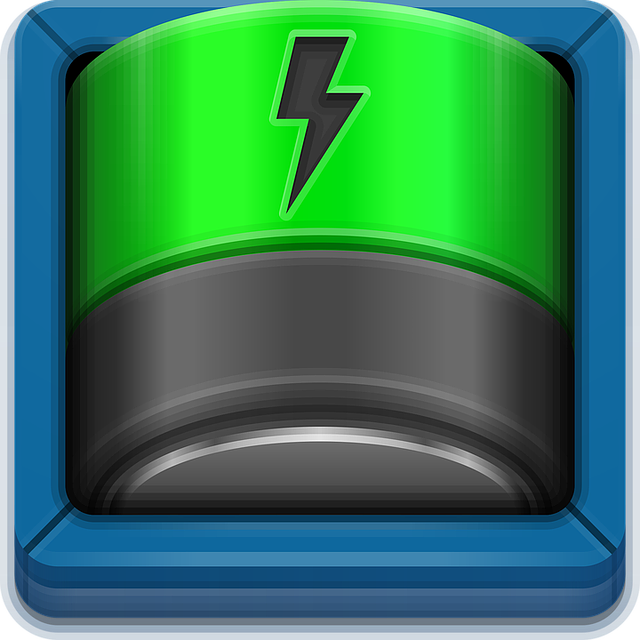
When recycling button batteries, a common type of battery found in household items such as watches, hearing aids, and remote controls, it’s crucial to follow safe and responsible practices to prevent environmental harm and avoid hazardous situations. To begin the recycling process at home, first, identify the types of button batteries you have; common varieties include lithium-coin batteries. Proper disposal or recycling is essential as these batteries contain lithium, which can be dangerous if disposed of improperly. Once you’ve identified the batteries, carefully remove them from devices using a soft brush to clean any corrosive material that may have formed on the terminals during their lifespan.
Next, locate a local hazardous waste collection center or an electronic waste recycler that accepts button batteries. These facilities are equipped to handle battery recycling safely and responsibly. Do not attempt to dispose of button batteries in regular trash or recycling bins, as they can cause harm to wasteworkers and pollute the environment. Instead, pack the batteries securely in a tape-sealed, non-metallic container to prevent short circuiting and potential leakage during transport. Clearly label the container with “Button Batteries for Recycling” to ensure proper handling. By taking these steps, you contribute to the safe disposal of button batteries and support the sustainability of battery resources. Always check with your local waste management authority for specific guidelines and available recycling options in your area.
Community and Corporate Initiatives for Responsible Button Battery Recycling
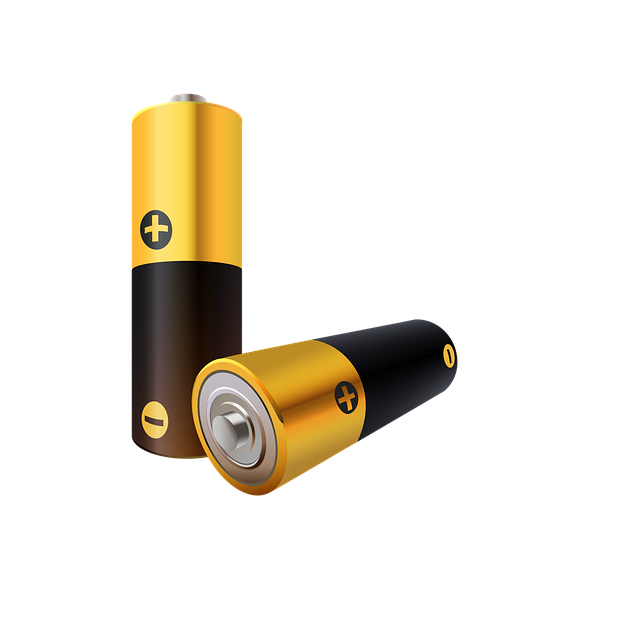
button batteries pose a significant environmental and safety hazard due to their lithium content, which can cause harm if ingested or damage ecosystems upon disposal. To mitigate these risks, community and corporate initiatives play a pivotal role in promoting responsible recycling practices for these small but potent cells. These initiatives often involve local waste management programs that collaborate with battery manufacturers to provide collection points for used button batteries. By educating the public on the proper disposal methods and facilitating convenient drop-off locations, communities can significantly reduce the environmental impact of button batteries.
Corporations, on a larger scale, are also actively involved in this effort. Many leading companies have adopted take-back programs, where consumers can return used button batteries to retail outlets or directly to the manufacturer. Additionally, corporate investment in research and development has led to advancements in recycling technologies that recover valuable metals from spent batteries, thereby closing the loop on resource use. These initiatives not only protect the environment but also contribute to a circular economy, ensuring that the materials within button batteries are reused responsibly, reducing waste, and conserving natural resources.
Future Innovations in Button Battery Recycling Technology
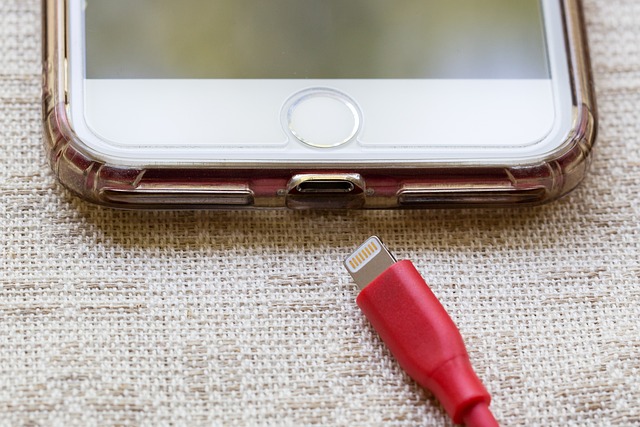
The recycling of button batteries, which are critical components in a myriad of household devices from remote controls to hearing aids, is gaining increasing attention due to their toxic composition and environmental impact. Current recycling methods primarily focus on the recovery of metals like lithium, zinc, and mercury from these batteries. However, as technology advances, future innovations promise more sustainable and efficient processes. Researchers are exploring bio-leaching techniques that utilize microorganisms to extract metals without the need for harsh chemicals. This method not only reduces environmental contamination but also recovery costs. Additionally, advancements in material science are leading to the development of rechargeable button batteries, which would significantly reduce the number of disposable batteries required and thus diminish the waste stream. Smart recycling systems are also being developed, which can sort and divert spent button batteries to appropriate recycling facilities, thereby improving recycling rates. These technologies, once fully realized and implemented, will undoubtedly transform the landscape of battery recycling, ensuring a more responsible approach to managing this essential but hazardous technology. It is imperative that both industry and consumers stay informed about these advancements to facilitate a smoother transition towards a more sustainable future for button battery disposal and reclamation.
Button batteries, while small in size, pose a significant environmental threat if improperly disposed of. This article has shed light on the importance of recycling these batteries responsibly and provided clear guidelines for individuals to safely manage their end-of-life. From understanding the environmental impact they have to identifying and collecting them from electronic devices, the steps to recycle button batteries are now within reach for households. The recycling process reveals how these batteries can be repurposed, which is not only beneficial for the environment but also for sustainable resource management. Community and corporate initiatives play a crucial role in promoting responsible recycling behavior, and future technological advancements promise even more efficient solutions. It’s clear that by adopting these practices, we can mitigate the negative effects of button batteries and contribute to a cleaner, greener planet.
